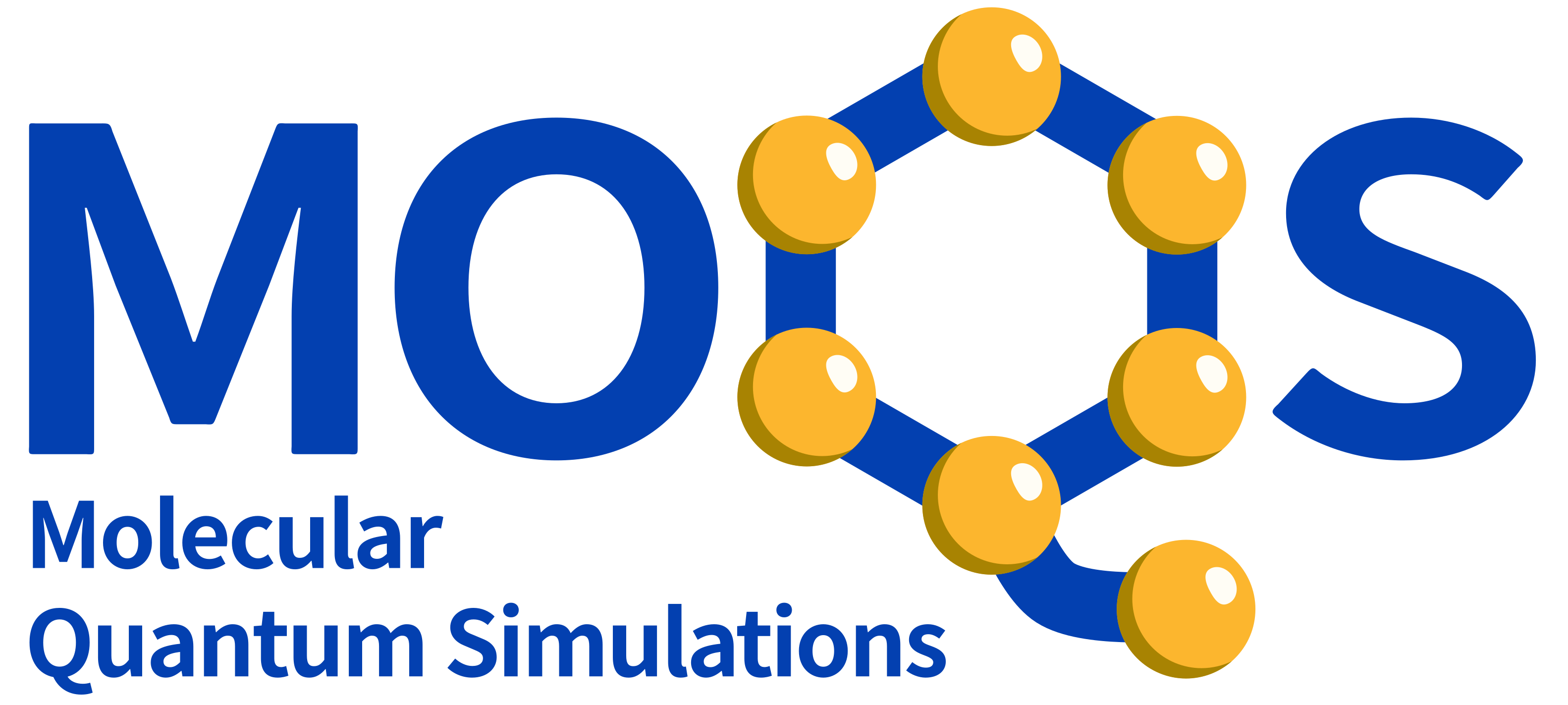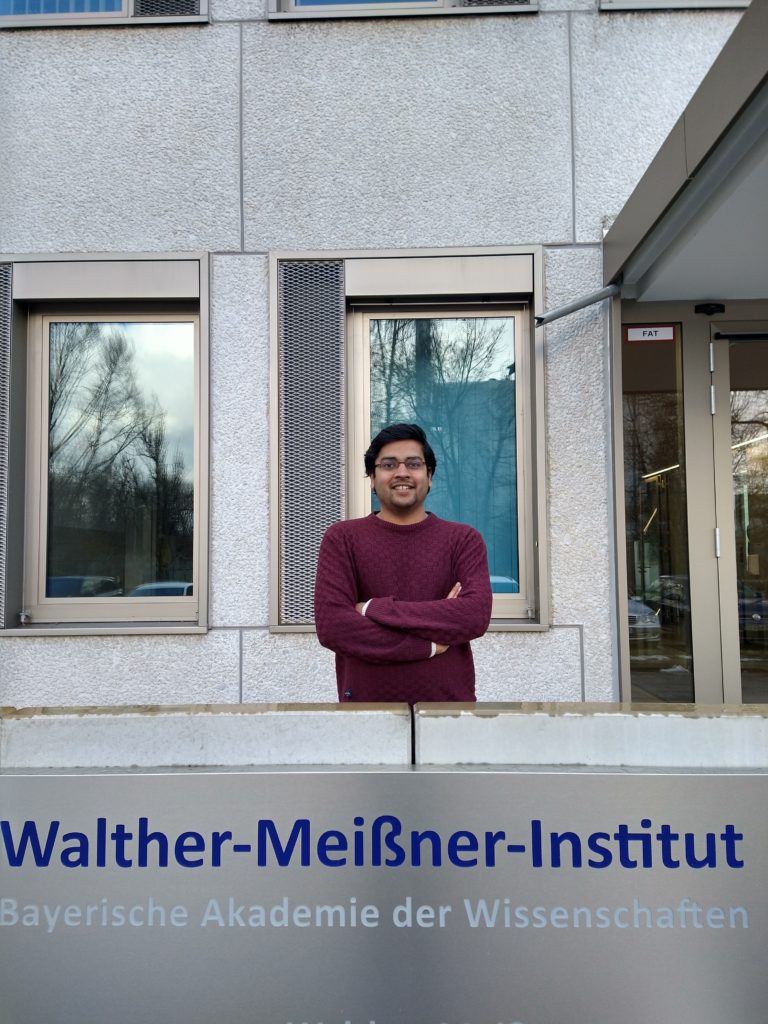
Malay Singh (ESR 7) works on the use of multi-qubit tunable couplers for quantum simulations in his PhD project at the Q-Computing group led by Prof. S. Filipp at WMI, Munich. Along with this, he aims to develop scalable control software for quantum computing that helps in turning science into technology. Additionally, Malay will also explore ways to improve the calibration, accuracy and throughput of quantum simulation experiments. (See more about one of his projects in the video here.)
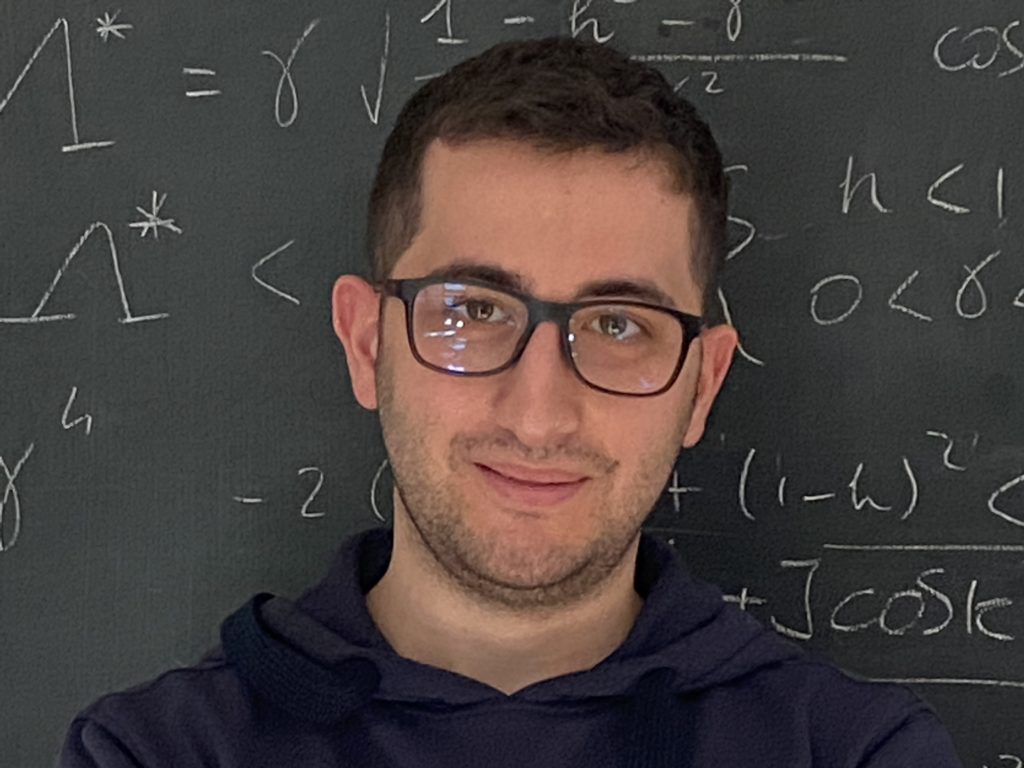
Alberto Catalano (ESR 13) is from Augusta, a harbour city on the Eastern coast of Sicily (Italy). Alberto will be studying the effects of frustration due to non-local interactions in molecular Hamiltonians, trying to identify the relevant degrees of freedom most suitable for quantum simulations. He will be under the supervision of Prof. Fabio Franchini at the Condensed Matter and Statistical Physics group at Ruder Boskovic Institute, Zagreb. (Watch a video about his project to learn more.)
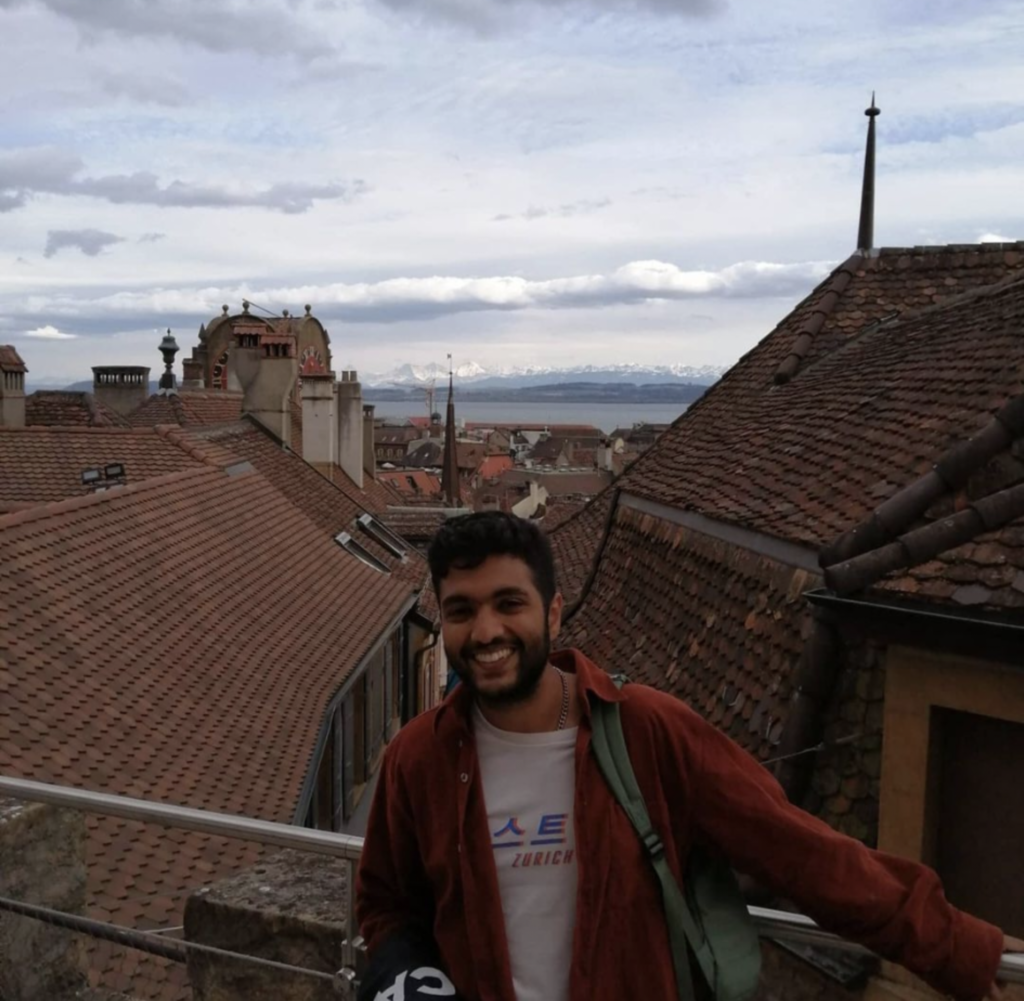
Madhav Mohan (ESR 12) comes from New Delhi in India. Madhav will work with Prof. Servaas Kokkelmans at the Coherence and Quantum Technology (CQT) group at TU Eindhoven. The group is building our own hybrid quantum computer in the lab, based on the Rydberg atom approach that promises enhanced scalability. He will be involved on the theory side of the project – this consists of devising optimized software algorithms and protocols for the hardware, towards the solution of molecular structure and dynamics problems. (See world with his eyes in this creative video.)
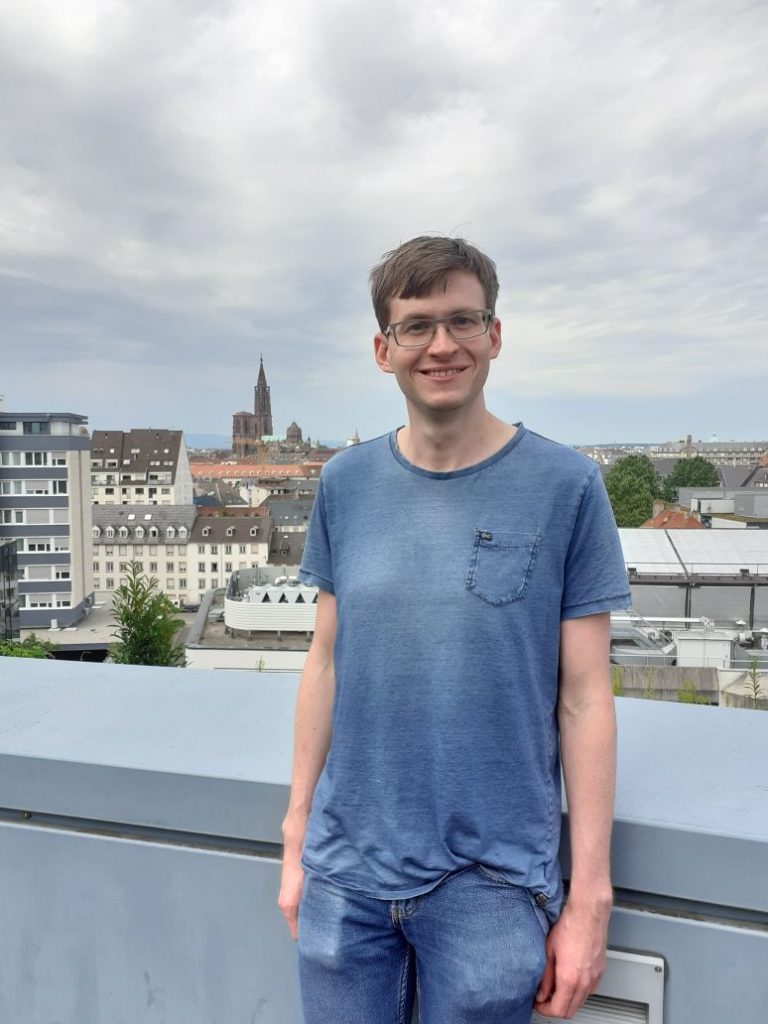
Sven Jandura (ESR 4) comes from Dresden in Germany. He will study quantum gates for quantum computers and quantum simulators based on cold trapped Rydberg atoms in Guido Pupilllo’s group at the University of Strasbourg. Specifically, Sven will investigate how gates on three or more qubits can be performed natively and without decomposing them into single and two qubit gates. Those protocols could allow to run quantum circuits with higher fidelity. (Learn more about his research in a video here.)
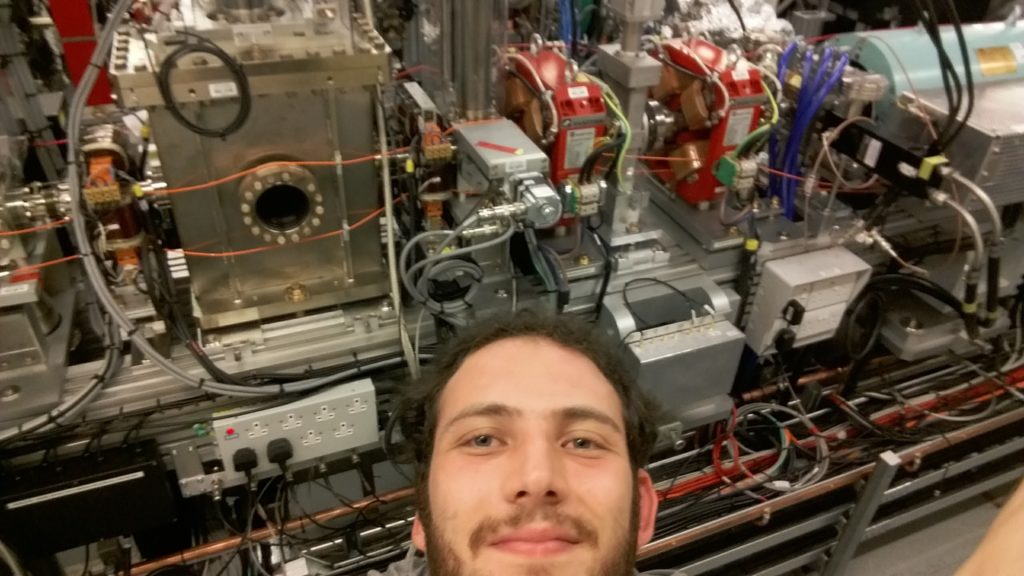
Daniel Bultrini (ESR3) was born in Rome but grew up in Thailand. He will be researching the simulation of non adiabatic chemical simulations on quantum computers (read: slightly closer to what we think is really happening) with Prof. Dr. Oriol Vendrell at University of Heidelberg. He hopes that we can one day find out how information is stored and passed around in molecules when you can simulate everything about it, and how one can interact and control it with light. Find his explanation of quantum computing in a video.
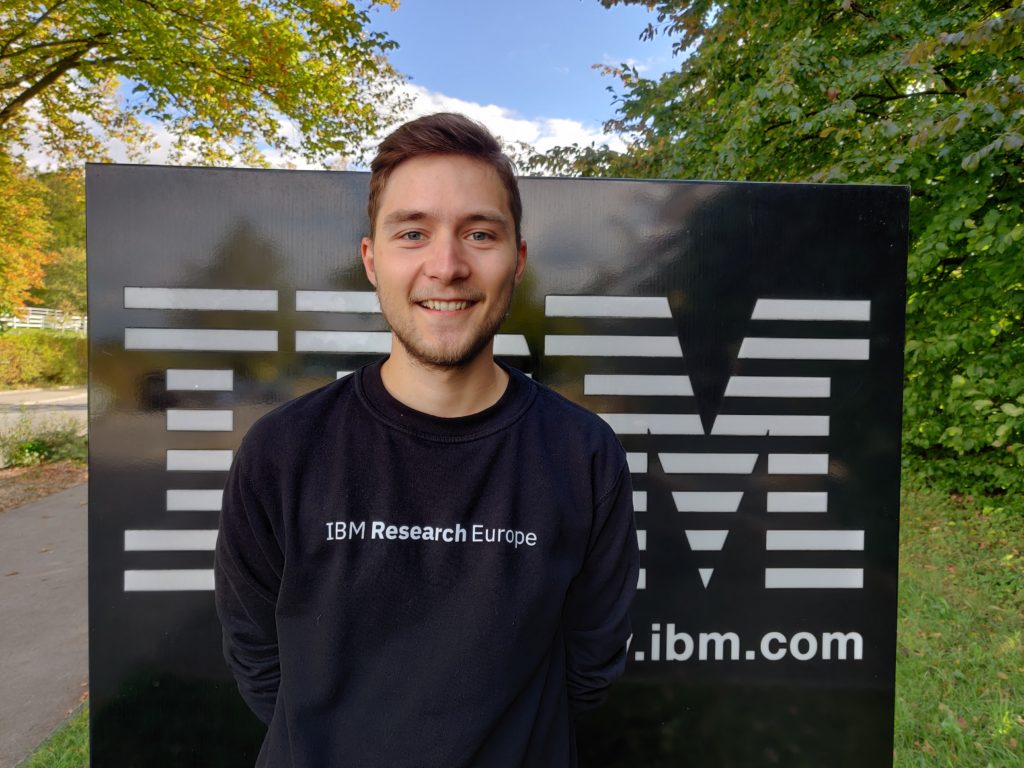
Laurin Fischer (ESR 1) will carry out his project on quantum computing applications in the natural sciences with Dr. Ivano Tavernelli’s group at IBM Research Zürich. He will be working on the development of quantum algorithms and software for electronic structure calculations which are suited for near-term quantum hardware. To understand quantum physics better and learn whether God plays dice or not see his short video here.
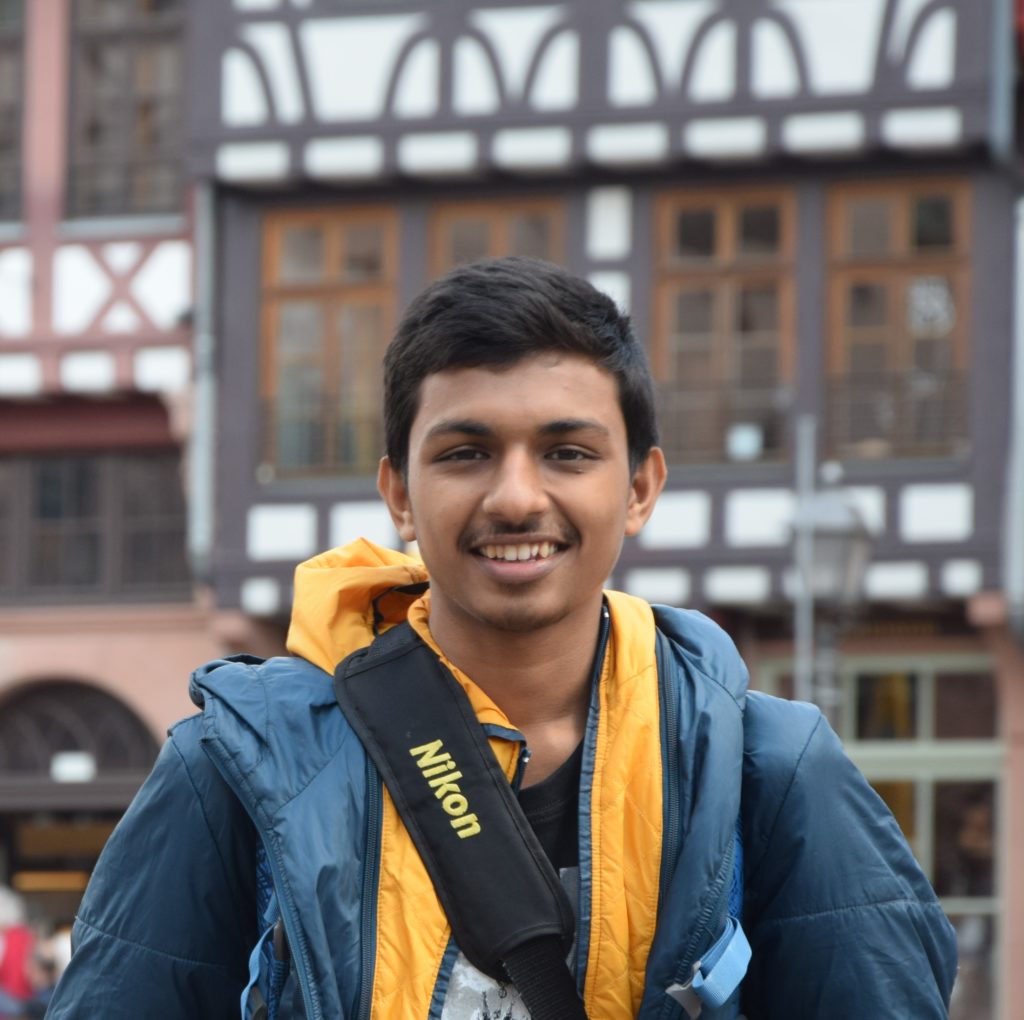
Swayangdipta Bera (ESR 15) will work under supervision of Dr. Shannon Whitlock at University of Strasbourg on Hybrid quantum-classical Molecular Quantum simulations with Rydberg qubits. He will investigate molecular spectra and dynamics using Rydberg quantum simulators. (Learn more about his work here.)
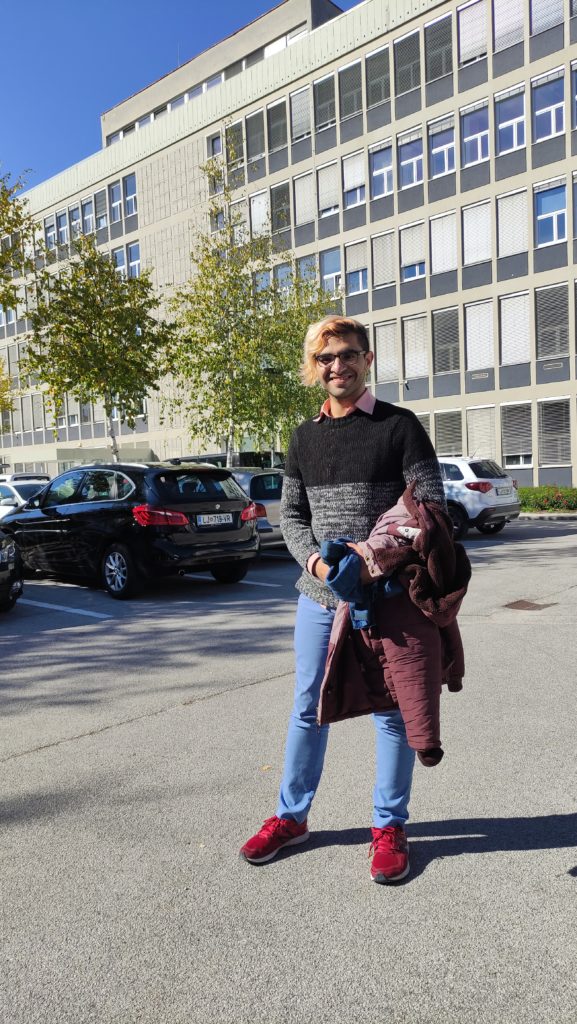
Yusuf Kasim (ESR 6) works in Ljubljana, Slovenia with the group of Prof. Tomaz Prosen. The subject of his PhD is “Exact tensor network methods for many body dynamics”. Yusuf is really interested in the theoretical aspect of quantum many body physics and is looking forward to discover this topic with both analytical and numerical methods. (Learn more about his projects during PhD in a short video here.)
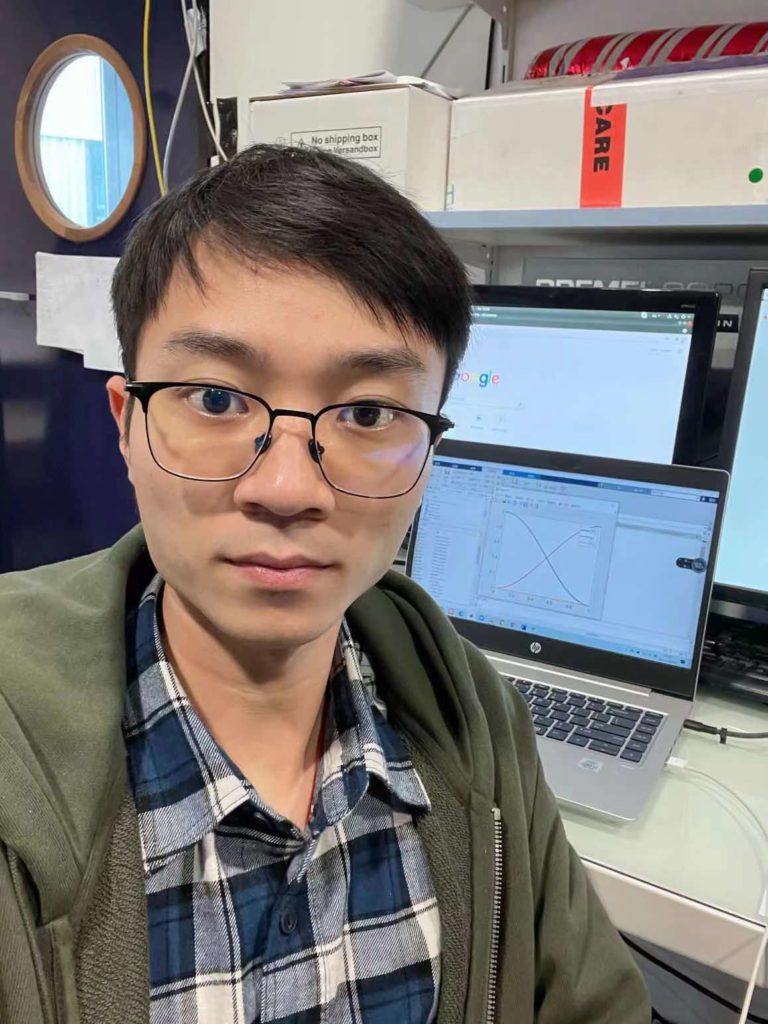
Shuzhe Yang (ESR 8) was born and brought up in Jingmen in China. He obtained his master’s degree in South China normal university. There, his research work focused on Microwave measurement in cold Rydberg atoms. Currently, he works in the lab of Prof. Shannon Whitlock at the University of Strasbourg , where he will advance the state-of-art quantum processors based on arrays of Rydberg-excited atomic ensembles for the implementation scalable quantum information processing and solving molecular physics problem. (Learn more about his current project here in a video.)
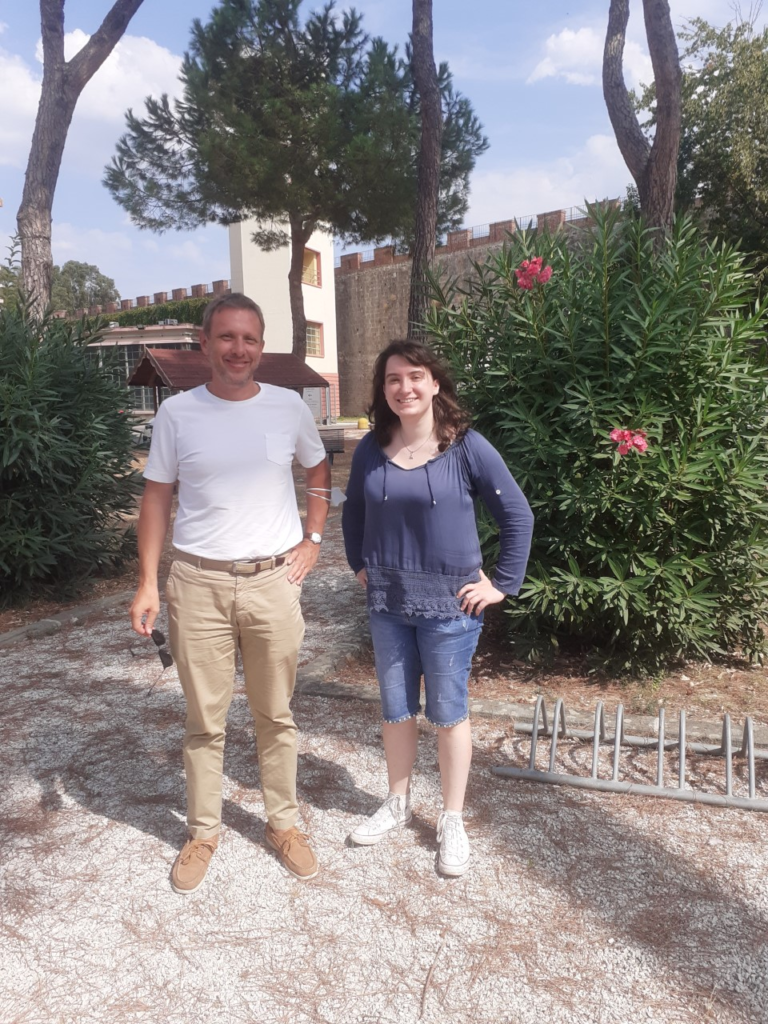
Bleuenn Bégoc (ESR 11, right, next to her supervisor Oliver Morsch) was born and grew up in Brittany in France. She did her master’s degree in condensed matter and nanophysics at the University of Strasbourg in parallel with the magister’s degree in fundamental physics and the international doctoral school Quantum Sciences and Nanomaterials (QMat). She is now enrolled in the doctoral program in Prof. Morsch’s group in Pisa, Italy, where her experimental work focuses on developing experimental techniques to control dissipation and decoherence in Rydberg atom-based quantum simulators.
(Check out video about her project here.)

Riccardo Roma (ESR 9) was born and brought up in Biella, in Italy, even though he lived in Turin for a few years. Riccarod studied in Turin for both his Bachelor (Physics) and Master Degree (Physics of Complex Systems, with a focus on Quantum Computing). His research project takes place at Saarland University, in Germany, in Prof. Wilhelm-Mauch’s group. It focuses on the interaction between superconducting qubits and resonators, with the hope of bringing a computational speed-up with an architecture of this kind.
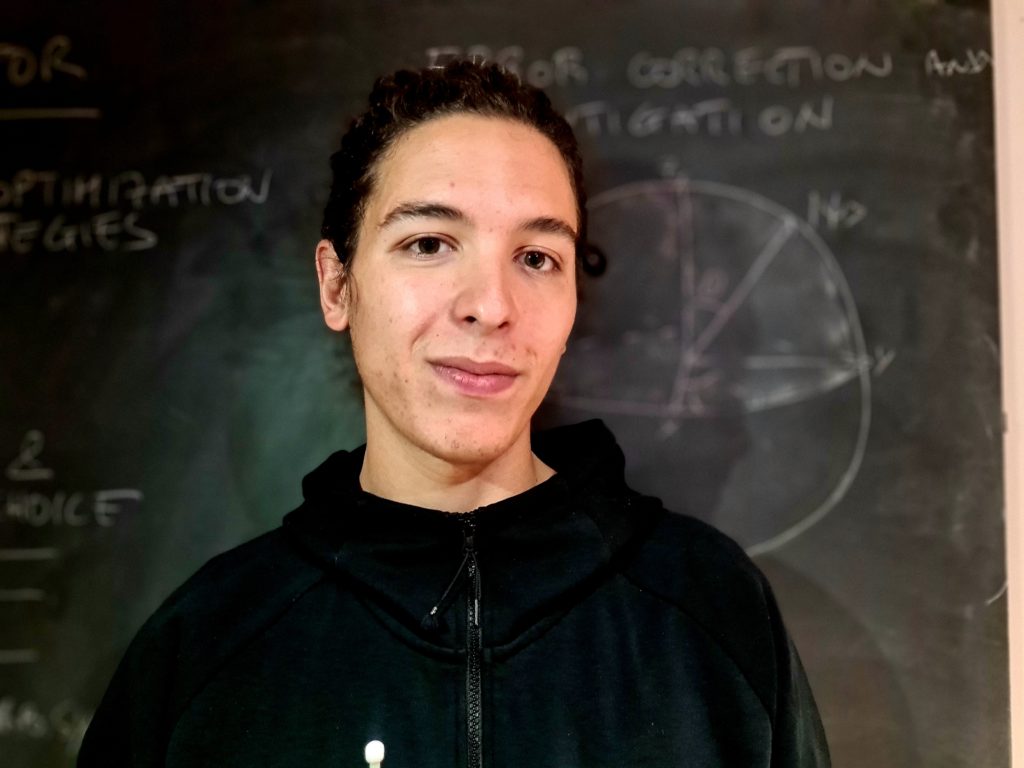
Davide Materia (ESR 2) was born and raised in Rome, and after a bachelor degree in physics at university of Rome he moved to Zurich for his master’s degree in quantum engineering (ETH) specializing in quantum chemistry at the IBM Zürich research lab.
Davide will study novel approaches of simulating molecules with the use of a quantum computers (VQE improvements) under Leonardo Guidoni’s group at university of Aquila, Italy. (Check out his video about quantum chemistry here.)
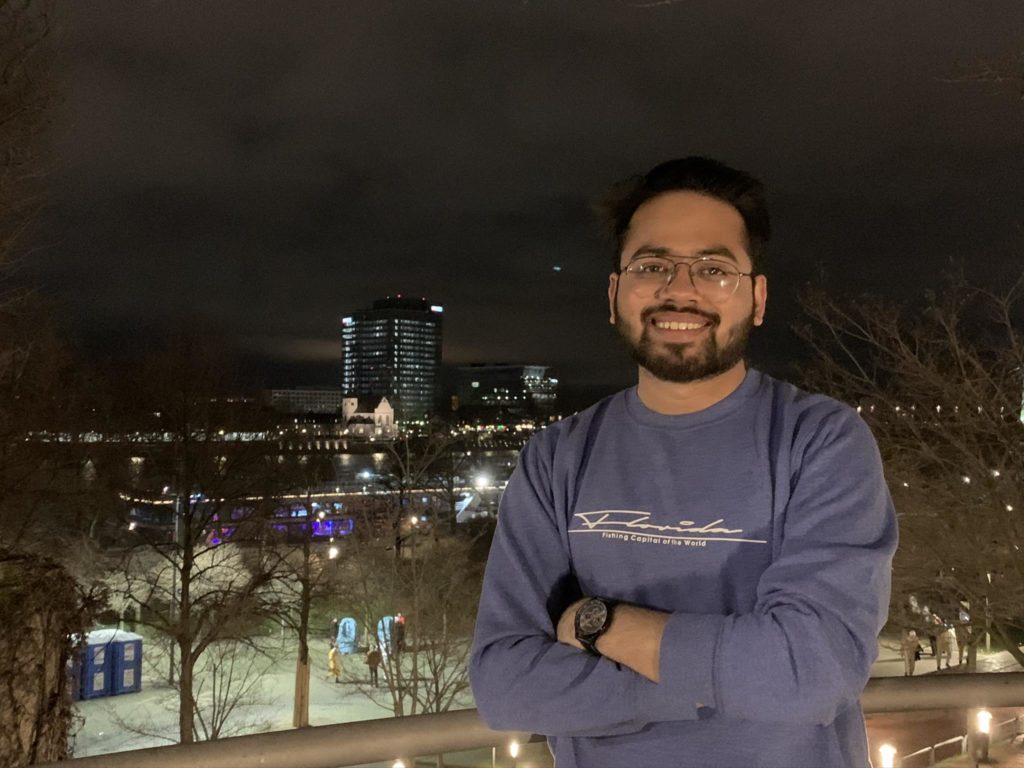
Tanul Gupta (ESR 10) comes from India where he was working as a scientist at the Indian Space Research Organization before moving to Europe. He did his Masters in Physics from the University of Cologne, Germany. In his PhD project at the University of Strasbourg, he will investigate quantum simulations of energy transfer dynamics in molecular complexes using cold Rydberg atoms in Professor Guido Pupillo’s group. He will be developing analytical and numerical techniques to describe transport in open quantum systems. He will apply these techniques to understand and optimise quantum transport in long-range disordered models in the presence of controllable decoherence and dissipation.
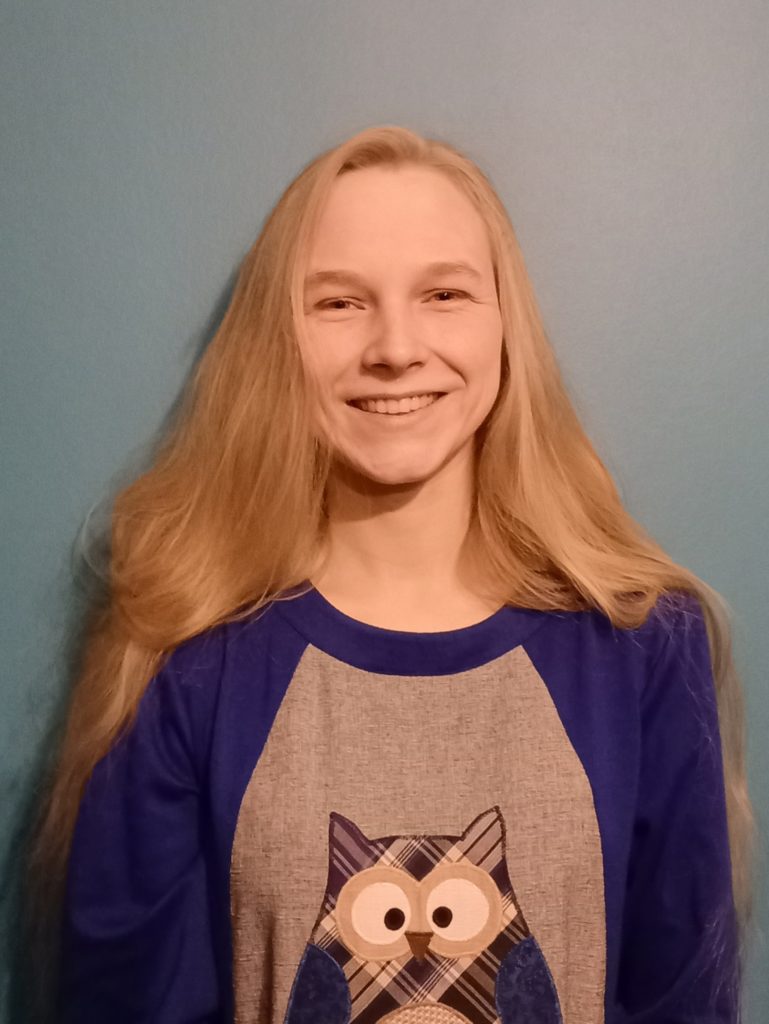
Tatiana Bespalova (ESR 14) grew up in Russia and completed her studies in theoretical physics with strong courses in mathematics. In her PhD project at the University of Strasbourg under the supervision of Professor Guido Pupillo and in close collaboration with IBM, she is going to focus on on designing both algorithms and gates for concrete realisations of quantum computers.

